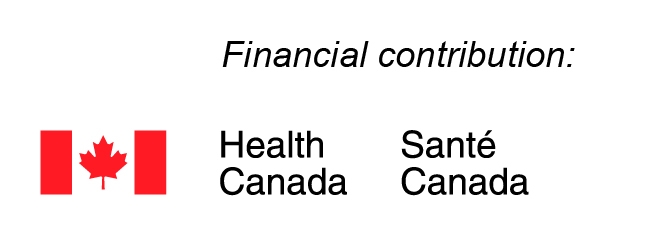
The decision to have an abortion is common, but personal. You might feel vulnerable or nervous about bringing it up to your healthcare provider if you don't know how they will respond.
![]()
We can't promise a positive response from every provider, but many are supportive of abortion and they will be glad to help. Many doctors and nurses already offer abortion regularly!
Some healthcare providers may be anti-choice and decide not to help. While others may just not know much about it, or already prescribe it as part of their practice.
Preparing for this conversation can help you feel more confident.
Prepare Mentally
Start by going over each step you'll need to take. You can try to picture yourself completing each one, how it could go, and what you might need.
Steps:
- Making the appointment
- Talking to the receptionist when you arrive
- Bringing up the topic of your pregnancy and your decision to have an abortion
- What you’ll do if you need to educate the nurse or doctor
- Taking your prescription to the pharmacy
- What you’ll do if you need to educate the pharmacist
Prepare Emotionally
Having an abortion may be a new experience for you. Checking in with yourself about how you feel before speaking to your healthcare provider can help you figure out what you will want and need to take care of yourself.
You might consider:
- How determined you feel to get your abortion. There’s support if you’re not feeling ready or sure that you want to have an abortion.
- If there is a day or time of day that feels best for you to make and go to your first appointment.
- If you want support from anyone specific in your community.
- If there are any practices or supports that feel important to have ready before, during, and after this conversation.
- If you have any worries or fears. Identifying them can help you consider your options and how you might respond. For example, if you're worried a healthcare provider will refuse to help, check out the section below on How you can respond and Step 3 of this guide for some tips.
- Any previous experiences you have had with the healthcare system. Both negative and positive experiences can affect how you feel about having a conversation with a healthcare provider.
- Trying some affirmations. These are phrases or words you can say to yourself to remind you of your strength. For example,
- “I know myself best and I’m in charge of my health.”
- “I can handle whatever comes my way.”
- “If this doctor has a negative reaction, it’s not about me.”
- Being honest with the healthcare provider about being nervous (if it feels safe to). This can break the ice and help you feel more at ease.
If you would like any support preparing, you can call the Access Line at 1-888-642-2725 or text 613-800-6757.
Know Your Facts!
Knowing what you're entitled to, and what healthcare providers can or can’t do, can help you feel prepared.
You could:
- Read Step 1 of this guide as many times as you need to. You could even bring it with you to the appointment.
- Show the Facts about medication abortion in Canada section from Step 1 to your healthcare provider.
- Review Your Sexual Rights and Accessing Healthcare.
Consider Bringing a Support Person
You are allowed to bring a support person into the appointment with you. Consider the people in your life who know you, who you trust, and who is generally supportive of you.
A support person could:
- Take notes
- Remind you to ask questions
- Help you respond to what the healthcare provider says
- Lower any anxiety you might have
- Help you to feel more like yourself
- Hold your hand during the appointment, or give you a hug after
- Talk with you before and after the appointment to make sure things are clear
- Help you remember the information shared during the appointment
![]()
What you can say
You are entitled to medical care that meets your needs.
It's okay to ask healthcare providers for what you need and want. Practicing what to say can help you feel confident and prepared to do so.
The sample scripts below provide examples of what you could say at each step. Some of these may sound like something you would never say, but you can change anything to make them your own.
Making your appointment
Staff may ask for the reason for your appointment.
You could say:
- “I’m having issues with my period.”
- “Menstrual health issues.”
- “I just need a prescription.”
Asking for Medication Abortion
You could say:
- “I’ve taken a pregnancy test, and it's positive. I don't want to continue the pregnancy. Do you prescribe medication abortion?”
- “I just found out I’m pregnant and I don’t want to be. I'm here because I need a prescription for Mifegymiso.”
- “My period is normally very regular and it was late this month. I took a pregnancy test and it was positive. I don't want to be pregnant right now. I heard you can take medication to end the pregnancy and that’s what I want to do. Could you prescribe it to me?”
- “I wanted to ask you about something important, and it feels vulnerable to me. I just found out I'm pregnant and I don’t want to continue this pregnancy. Could you prescribe me medication abortion?”
- “Can I get a prescription for medication abortion?”
- “Do you provide abortion? I need a medication abortion.”
- “I’m pregnant and I would like to have an abortion. Is that a service you provide?”
They have never offered abortion care before or don’t have training
You could say:
- “I found these resources for healthcare providers who have never prescribed medication abortion before but are allowed to. Would you be willing to consider it? I don't mind if it would be your first time prescribing it.”
- “You actually don’t need specific training to prescribe Mifegymiso. I found this resource with helpful information if you're interested in offering abortion to your patients. It could help many other people too.”
- “If you're willing to do it, it would be much more accessible to me than if I had to... [travel out of town, be seen by someone who doesn’t know me, etc.).“
They aren't allowed to prescribe it or you have to go to the hospital/a specialist
You could say:
- “I know that in Canada, family doctors and nurse practitioners are legally allowed to prescribe medication abortion. If you can help me, I found a resource I can share with information for providers who haven’t done it before.”
- “I’d rather not go to a hospital / specialist when I don't need to. I know that primary care providers are allowed to prescribe medication abortion and I can share information about it with you if you’re open to it.”
They want to send you for counseling about your options or they question your decision
You can say:
- “No, thank you. I’ve had counselling already and I’m sure of what I want. Can you refer me to someone who does provide abortions?”
- “Thank you for thinking of that. I have considered all my options and I know this is what's best for me. What I’d like today is to go ahead with a medication abortion if you are willing to help me.”
- “I already spoke with a counsellor. All I’m looking for today is a prescription or a referral.”
They are required to get an ultrasound first
You could say:
- “Is there a reason you think I need an ultrasound? My period is very regular, so I know I am ___ weeks pregnant.”
- “Is there a medical reason to have an ultrasound? I know Health Canada removed the requirement for mandatory ultrasounds before a medication abortion in 2019. I already had a positive pregnancy test. I know I’m early in the pregnancy because my last period was normal.”
- “If there are no medical reasons for the ultrasound, it isn't required. I found this resource for doctors or nurses with up-to-date information if you’re interested.”
Note: According to Health Canada, an ultrasound isn't necessary before a medication abortion, but some health care providers may feel more comfortable proceeding with one. It may also be medically necessary if there are symptoms of an ectopic pregnancy or the date of the last menstrual period isn't known. Some providers who aren't comfortable with abortion may ask for an ultrasound because they think it could change someone's mind. You have the right to ask a provider to explain why they want an ultrasound and to request that they don't show you the screen or any images if you proceed with one.
They need to notify your parents or guardians because you are under 18 years old
You can say:
- “I don't consent to you contacting my parents about this. I don't have to be 18 to get an abortion on my own. I understand what I am asking and I am sure of my decision.”
- “You have no reason to contact my parents and I don’t give my permission for that. I am sure of my decision.”
Note: The only exception to this is Quebec, where parental consent is needed if you are under 14 years old. Learn more about abortion access for people under 18 years of age by province or territory in the Abortion Access Tracker.
This information is part of the Asking for an Abortion Pocket Guide, which provides facts and tips on how to ask a healthcare professional for medication abortion. It was last reviewed in April 2025.


The views expressed herein do not necessarily represent the views of Health Canada.

